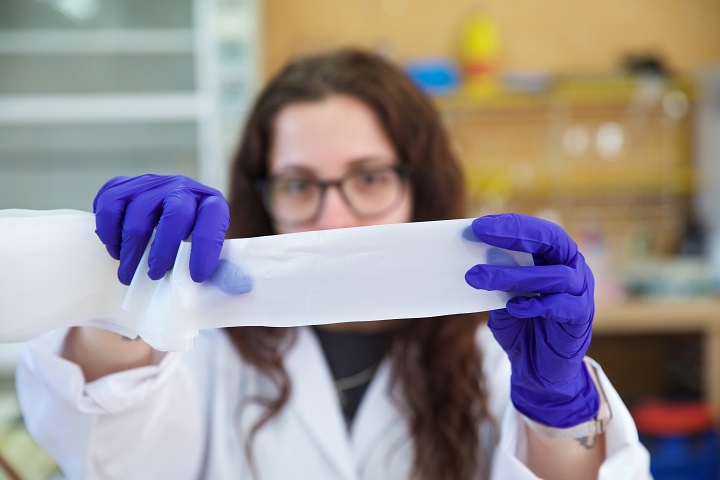Researchers from the Department of Analytical Chemistry, Nutrition and Bromatology of the Universidad de Alicante (UA) have developed a new packaging material that contains agri-food waste from the pineapple processing industry suitable for preserving meat products for longer. Through the Valpipack circular economy project, they have managed to develop “an active antioxidant packaging from pineapple hearts that allows the useful life of packaged meat products to be increased by 15%,” explains the main researcher of the project and professor at the UA, Ana Beltran.

Circular economy
This project is an example of reuse and revaluation of agri-food waste since, in the case of pineapple, around 435,000 tons of waste are generated annually, which leads to an environmental problem and represents the loss of 360 million euros. «Of all the pineapple that the European Union imports, approximately half is sold directly and the other half is processed. 60% of the product generated during this processing phase corresponds to byproducts such as the crown, skin and heart of the pineapple,” indicates the researcher.
Thanks to the extraction of bioactive substances from the heart of the pineapple and their incorporation into a polymer matrix intended for active packaging, UA researchers have validated its antioxidant effect in products such as minced meat. The shelf life of these meat products is very limited, ranging between 4 and 10 days depending on the product and its storage conditions. “An increase in the useful life of these foods can contribute to reducing losses due to deterioration during storage and marketing and to expanding the distribution area of meat products,” explains UA professor and also member of the Valpipack project José Luis. Everything.
Validation phase
Currently, the UA team of researchers is in the validation phase of the packaging prototype developed through shelf life tests and sensory analysis on different types of food products susceptible to oxidative degradation reactions such as burger meat and ham. sliced “We hope that this new active packaging based on pineapple waste provides a new packaging solution to companies in the meat sector and we can contribute to environmental sustainability and reduce food waste,” they insist.
More information on the UA website.
UA image.
















